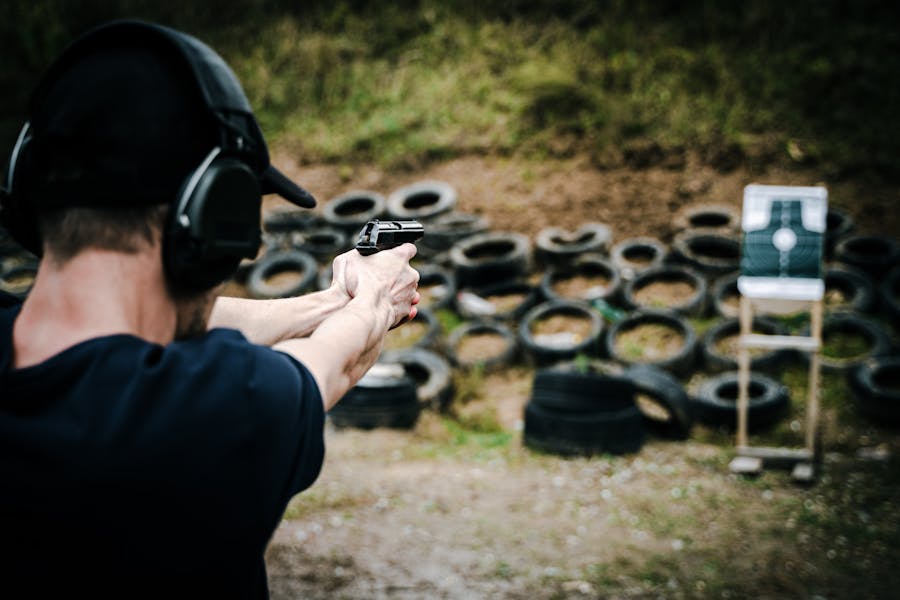What Happens If You Shoot Someone in Self-Defense in Colorado?

Many Coloradans carry a firearm hoping they’ll never have to use it. But when a self-defense shooting happens, the real shock often comes afterward. Even if you were defending yourself, you may still face questions from law enforcement, the threat of arrest, or even charges.
The truth is, shooting someone in self-defense can lead to a legal battle you didn’t see coming. And in Colorado, how that plays out depends on what happened, how you respond—and whether the law agrees you had the right to use lethal force.
What to Expect After a Self-Defense Shooting
When law enforcement arrives at the scene of a shooting, they won’t immediately accept your claim of self-defense. Instead, they’ll:
- Secure the scene and separate all witnesses
- Collect weapons and evidence
- Question everyone involved, including you
- Potentially arrest you, even if you claim self-defense
CRITICAL WARNING: What you say to police in these first moments can dramatically impact your case. Many innocent people have unintentionally damaged their legitimate self-defense claims through statements made while still in shock.
Will You Be Arrested After a Self-Defense Shooting?
The hard truth: being in the right doesn’t mean you’ll avoid arrest. Colorado police often make arrests following shootings, even when self-defense seems likely, for several reasons:
- Officers must make quick decisions with limited information
- Investigations take time, and police err on the side of caution
- Prosecutors, not police, ultimately determine charges
Remember that an arrest is not a conviction. It’s simply the beginning of the legal process where your self-defense claim will be evaluated.
Colorado’s Self-Defense Laws: Know Your Rights
Colorado law recognizes your right to defend yourself under C.R.S. § 18-1-704, which states you may use physical force when:
- You reasonably believe it’s necessary to protect yourself or others from imminent harm
- You use only the degree of force appropriate for the situation
For deadly force to be justified, you must reasonably believe you’re in imminent danger of:
- Being killed
- Suffering great bodily injury
- Facing sexual assault, kidnapping, robbery, or burglary
Colorado is a “Stand Your Ground” state, meaning you have no duty to retreat before using force to defend yourself, even outside your home.
The “Make My Day” Law: Self-Defense in Your Home
Colorado’s “Make My Day” law (C.R.S. § 18-1-704.5) provides stronger protections when you’re in your dwelling. If someone unlawfully enters your home, and you reasonably believe they might use physical force (no matter how slight) against any occupant, you can use deadly force.
This law applies only when the intruder has actually entered your home—not if they’re on your porch, in your yard, or outside your door.
What Happens During the Investigation?
After a self-defense shooting, expect:
- Evidence collection: Police will thoroughly document the scene, collect weapons, take photographs, and gather physical evidence
- Interviews with all parties and witnesses: Your statements, the statements of any victims, and those of witnesses will be recorded
- Review of surveillance footage: If available, security cameras or doorbell cameras may provide crucial evidence
- Medical examiner reports: These will determine entry wounds, bullet trajectory, and other forensic details
- Background investigations: Your history and that of the other person will be examined
Throughout this process, having experienced legal counsel is essential to ensure your rights are protected.
Prosecution Decision: Will You Face Charges?
Once the investigation concludes, prosecutors will decide whether to file charges. Their decision hinges on:
- Whether your belief of imminent harm was reasonable
- Whether the level of force used was necessary
- The credibility of your statements and those of witnesses
- Evidence supporting or undermining your self-defense claim
Even with strong evidence supporting self-defense, prosecutors sometimes file charges, believing the facts should be determined by a jury.
Self-Defense as an Affirmative Defense
If you’re charged, self-defense functions as an “affirmative defense.” This means:
- You acknowledge the act (the shooting) occurred
- You assert it was legally justified under the circumstances
- The prosecution must then disprove your self-defense claim beyond a reasonable doubt
The burden of proof ultimately lies with the prosecution, but presenting a compelling self-defense case requires experienced legal representation.
Civil Liability: Could You Still Be Sued?
Even if no criminal charges are filed—or if you’re acquitted—you could still face a civil lawsuit from the person you shot or their family.
Colorado’s “Make My Day” law provides immunity from civil liability in home defense situations that qualify under the statute. Otherwise, civil courts apply a different standard of proof than criminal courts, making civil lawsuits possible even after criminal exoneration.
How Dawson Law Can Help You
If you’ve been involved in a self-defense shooting, the stakes couldn’t be higher. Our experienced criminal defense attorneys will:
- Respond immediately to protect your rights during initial police questioning
- Conduct an independent investigation of the incident
- Work with forensic experts to build your self-defense case
- Negotiate with prosecutors to prevent charges or secure their dismissal
- Present a compelling self-defense case to a jury if necessary
- Protect you from civil liability when possible
Act Quickly to Protect Your Rights
The aftermath of a self-defense shooting is chaotic and frightening, but your actions in these moments are critical. Remember:
- Say as little as possible to police without an attorney present
- Do not touch or alter evidence at the scene
- Identify witnesses if possible
- Seek medical attention if you’re injured
- Contact an experienced criminal defense attorney immediately
At Dawson Law, we’ve successfully defended clients in self-defense cases throughout Colorado. We understand both the legal complexities and the emotional trauma involved in these situations.
Don’t face this alone. Contact us immediately for a confidential consultation if you’ve been involved in a self-defense shooting. Your freedom may depend on it.



